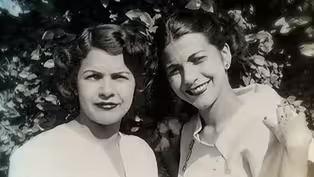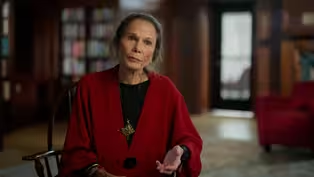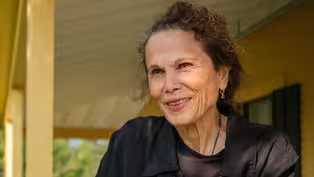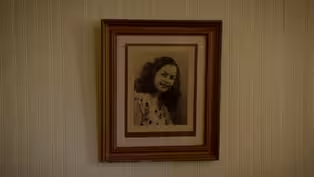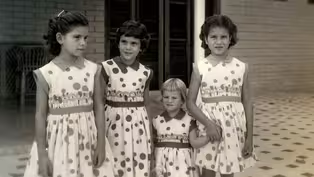
How Julia Alvarez was inspired by the working class
Clip: 9/17/2024 | 2m 52sVideo has Closed Captions
Julia Alvarez wrote about the interior lives of working class women.
While at the Yaddo writing retreat, Julia Alvarez found herself suffering from writers block. Inspiration struck when she befriended the maids, housekeepers and cooks and heard their stories, and eventually put together her book of poetry, "Housekeeping." "I wanted to write about the lore that comes when women are talking as they're doing their housework," said Alvarez.
Problems playing video? | Closed Captioning Feedback
Problems playing video? | Closed Captioning Feedback
Support for American Masters is provided by the Corporation for Public Broadcasting, AARP, Rosalind P. Walter Foundation, Judith and Burton Resnick, Blanche and Hayward Cirker Charitable Lead Annuity Trust, Koo...

How Julia Alvarez was inspired by the working class
Clip: 9/17/2024 | 2m 52sVideo has Closed Captions
While at the Yaddo writing retreat, Julia Alvarez found herself suffering from writers block. Inspiration struck when she befriended the maids, housekeepers and cooks and heard their stories, and eventually put together her book of poetry, "Housekeeping." "I wanted to write about the lore that comes when women are talking as they're doing their housework," said Alvarez.
Problems playing video? | Closed Captioning Feedback
How to Watch American Masters
American Masters is available to stream on pbs.org and the free PBS App, available on iPhone, Apple TV, Android TV, Android smartphones, Amazon Fire TV, Amazon Fire Tablet, Roku, Samsung Smart TV, and Vizio.
Buy Now
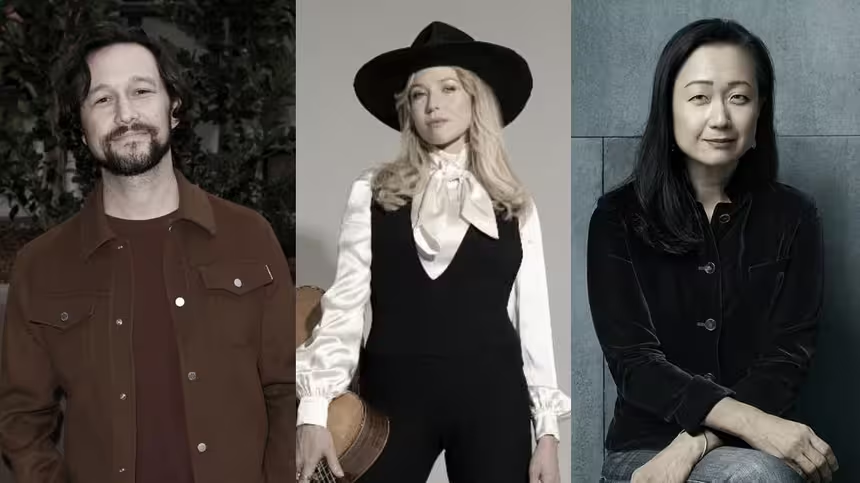
A front row seat to the creative process
How do today’s masters create their art? Each episode an artist reveals how they brought their creative work to life. Hear from artists across disciplines, like actor Joseph Gordon-Levitt, singer-songwriter Jewel, author Min Jin Lee, and more on our podcast "American Masters: Creative Spark."Providing Support for PBS.org
Learn Moreabout PBS online sponsorship(gentle music) - [Narrator] Julia was teaching poetry at the Abbott Academy when she was invited to the prestigious Yaddo Institute writer summer retreat, where great American writers had practiced their craft.
- All during the day, you were not allowed to visit each other.
You were supposed to write away, write away.
Here I was in the tower room trying to write away, write away, and I would, drew a blank.
I didn't, I felt artificial.
I felt like I didn't know how to be this kind of a writer.
So all of a sudden, I heard the vacuum outside my door, and I thought, "Oh, there's somebody I can talk to."
I opened the door, it was one of the maids.
I started talking to her, she said, "Ssh, all the writers, "you can't disturb them.
Come on down."
I went down, down, down to the kitchen, where all the people that cleaned, the cook that was cooking, they were all sitting around, talking, talking, talking.
And I heard all their stories.
And all of a sudden, I remember my mother and the maids, and in the kitchen, talking about their cooking, talking about the housekeeping, talking about ironing, talking about washing.
And I went upstairs, and I started writing the "Housekeeping" poems.
(gentle music) I wanted to write about Mami, and I wanted to write about the tías, and I wanted to write about the niñeras, and I wanted to write about the lore that comes when women are talking as they're doing their housework, which I thought you couldn't write about.
I thought important writers wrote about important things.
(gentle music) - I think, Julia probably would've found that if she did try to keep her voice in the same register as Yates and Milton, and the men who had been taught to her, I'm not sure she would've found an audience.
Where she is really, really successful is that she has a powerful ear for the interior lives of women that hears the longing and the hurts.
The lives that we're told are not worthy of literature.
(gentle music) - Gladys sang as she worked in her high, clear voice, mangulinas, merengues, salves, boleros, himnos.
"Why do you sing?"
I ask her, as she polished off a song with the twirl of a feather duster.
"Singing," she told me, "makes everything else possible."
(gentle music) (clapperboard clicks)
How Julia Alvarez brought truth to the Mirabal sisters in her novel "In the Time of the Butterflies"
Video has Closed Captions
Clip: 9/17/2024 | 1m 29s | Julia Alvarez brought the story of the assassination of the Mirabel sisters to life in her novel. (1m 29s)
How Julia Alvarez conceived the story for her novel "Afterlife"
Video has Closed Captions
Clip: 9/17/2024 | 1m 5s | "Afterlife" was Julia Alvarez's way of "[giving] voice to that landscape of aging." (1m 5s)
Julia Alvarez: A Life Reimagined
Video has Closed Captions
Preview: 9/17/2024 | 1m 57s | Explore the story of writer Julia Alvarez, who blazed a trail for a generation of Latino authors. (1m 57s)
Julia Alvarez on the female perspective in "In the Time of the Butterflies"
Video has Closed Captions
Clip: 9/17/2024 | 2m 6s | Julia Alvarez wanted to write about dictatorship from a female perspective for her second novel. (2m 6s)
The true story behind "How the García Girls Lost Their Accents"
Video has Closed Captions
Clip: 9/17/2024 | 2m 5s | Julia Alvarez recounts the day she had to escape from the Dominican Republic with her family. (2m 5s)
Providing Support for PBS.org
Learn Moreabout PBS online sponsorshipSupport for PBS provided by:
Support for American Masters is provided by the Corporation for Public Broadcasting, AARP, Rosalind P. Walter Foundation, Judith and Burton Resnick, Blanche and Hayward Cirker Charitable Lead Annuity Trust, Koo...

